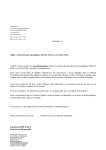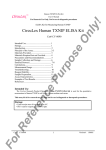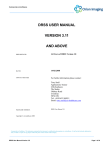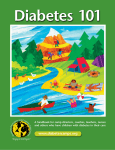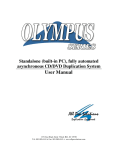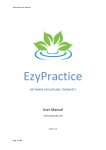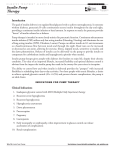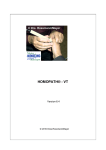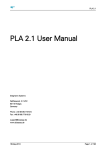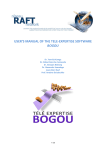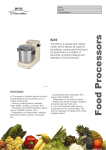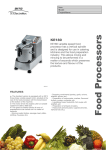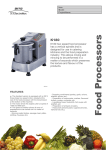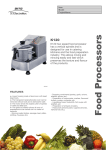Download Diabetes and special situations
Transcript
Diabetes and special situations ILLNESS, TRAVEL AND HOLIDAYS (English Version) Diabete e situazioni particolari (LINGUA INGLESE) Lilly What if you are ill? When you are ill, you need to take very good care of yourself to prevent complications or a rise in blood glucose levels. ANY ILLNESS MAY AFFECT BLOOD GLUCOSE CONTROL: COMMON COLD FLU OR BRONCHITIS SORE THROAT SKIN INFECTIONS URINARY TRACT INFECTIONS (E.G. CYSTITIS) STOMACH DISORDERS Some practical advice Rest as much as possible If you live alone, you may want to contact someone to inform them that you are ill In case of fever, you should drink more fluids than usual to prevent dehydration: choose drinks without added sugar, like water, tea, herbal teas or chamomile. Eat normally. If you have difficulties eating normally, replace solid foods with small amounts of sugared (non-diet) drinks, Coca Cola or lemonade, milk or milkshakes, fruit juice, ice cream, soup, or yoghurt Never discontinue your diabetes medications, as your blood glucose may increase even if you are eating very little. If you think you can adjust your insulin dosage yourself to maintain blood glucose control, do so; otherwise, contact the diabetology team or your doctor for instructions on how to adjust the dosage If you are already monitoring your blood glucose, increase the frequency of the checks: at least four times a day by sticking your finger. If you would rather not do this yourself, ask a friend or a family member to help you. If your blood glucose is higher than normal, it may be necessary to take a urine test for the presence of ketones. Contact the diabetology team or your doctor for practical advice If your blood glucose drops too low (hypoglycemia) you need to eat or drink something containing sugar, like jam, honey, fruit juice, sugared drinks or plain glucose; these should be preferred to chocolate or sweets, which have high fat contents In case of vomiting, contact the diabetology team or your doctor Lilly Traveling with diabetes If the trip is well planned, you will enjoy a pleasant holiday without any problems. Before departure, talk to your diabetologist; also, you may want to find out about a possible insurance policy to cover any diabetes-related emergencies. Having diabetes should not prevent you from traveling, provided you prepare in advance, planning your trip and your stay. It is also important to think about what food will be available in the places you will visit, and plan for your meals while traveling: for example, ask for meals for diabetics on board planes or ships. If you take insulin, check what type of insulin is available at your destination; the names and potencies of the different types of insulin may vary. Check whether vaccinations are required before reaching your chosen destination. Immunizations may temporarily affect your diabetes, and you may need to adjust the habitual dose of blood glucose control medication. Things to remember Although English is understood in many foreign Countries, you should learn a sentence in the local language so that you can ask for help if you need to. If you take insulin you are required to declare the presence of needles, syringes, pens and glucose meters at the custom. You can ask for a certification letter from your diabetologist. Take with you all the medications you habitually use, and consider the possibility that the trip may last longer than expected. Don’t forget the glucose meter and measuring sticks, as well as spare batteries And syringes or insulin pen needles. Make sure you have enough carbohydrates with you (sugar bags, crackers, etc.), in case any meals are delayed and your blood glucose drops. It’s important to have something on you (ID, card) that identifies you as a person with diabetes, in case you should get sick while you are abroad or you are asked questions by customs officers. Lilly Practical advice • If you are flying, store your insulin in your hand luggage, as it can freeze in the hold of the plane. • If possible, during the trip stop for some light exercise and check your blood glucose regularly if you are in the habit of doing so, particularly if you take insulin. • Continue to take your drugs, meals and snacks at regular times as far as possible. • If you travel to a different time zone, keep having your injections and your meals at the usual times. • Set your watch when you arrive and when you come back home. Also, remember that when you travel west the day is longer, so you may need more food as well as more insulin intake or tablets. • Conversely, when you travel east the day is shorter, so you might need less food and insulin or fewer tablets. On arrival WARM DESTINATIONS Protect yourself from the sun; keep insulin in a cool place out of direct sunlight; check your blood glucose level regularly; drink lots of fluids; do not walk barefoot on hot sand or other scorching surfaces. COLD DESTINATIONS Wear warm clothes and dress “in layers”: many thin layers are better than a single thick layer; don’t let the insulin get too cold; monitor your blood glucose level (it may be higher in cold climates). Glucose meters and sticks may be affected by hot and cold temperatures as well as altitude. Always read the User’s Manual of your measurement device for more detailed information. Lilly Before departure Go through a checklist to make sure you have everything you need INSULIN AND TABLETS, INCLUDING AN EXTRA PACKAGE TO TAKE NEEDLES , SYRINGES OR INSULIN WITH YOU ON THE PLANE ID CARD AND LETTER BY THE DIABETOLOGY TEAM FOR TRANSPORT ON THE PLANE GLUCOSE METER AND STICKS, INCLUDING SPARE STICKS AND BATTERIES SUGAR, GLUCOSE TABLETS AND FOOD FOR LOW BLOOD GLUCOSE MEDICAL INSURANCE AND DOCUMENTATION ANTI-DIARRHEA AND ANTI-NAUSEA TREATMENTS TO BE DISCUSSED WITH YOUR FAMILY DOCTOR OR DIABETOLOGIST A SAFE CONTAINER FOR NEEDLE DISPOSAL If you go to a party WHAT SHOULD I CHOOSE FROM THE BUFFET? You should choose foods with low amounts of simple sugars and fat and without sauces; prefer vegetables and fish CAN I HAVE ALCOHOLIC AND SUPER ALCOHOLIC DRINKS? If you are driving: Limit alcohol to a minimum and prefer non-alcoholic cocktails If you are not driving: You can have half a glass of wine or a small beer, as a maximum What about during the RAMADAN? Always contact your specialist ITDBT00268i Copyright © 2012, Eli Lilly Italia SpA. Tutti i diritti riservati. The complete line of brochures dedicated to Diabetes is available for download from www.lillydiabete.it Complications d oo Low bl e glucos t Is Wha etes Diab CAUSES AND HOW TO E IT AND RECOGNIZ OCCUR, TIONS, WHY THEY WHICH COMPLICA PREVENT THEM AND HOW TO NUTRITION AND (English Version) Le complicanze (LINGUA INGLESE) Version) EXERCISE RECOMME NDATIONS ABC (English Version) Diabete e situazion (LINGUA INGLESE) i particolari WHAT IT (English (LINGUA INGLESE) tto stile Cosa INGLESE) (Englis sulin IT IS USED h Ver sion) sion) L’ABC (LINGUAdell’insul INGLES ina E) bete è il dia (LINGUA of in HOW di vita h Ver (Englis IS AND Version) Il corre mia L’ipoglice (LINGUA Correct lifestyle AND HOLIDAYS DO TO WHAT CES SEQUEN CON (English Diabetes and special situatio ns ILLNESS, TRAVEL E) INGLES What Is Diabetes Diabetes and special situations Low blood glucose Correct lifestyle Complications ABC of insulin Also available in the following languages: Italian Filipino French Hindi Spanish Arabic German Romanian Chinese For more information please contact your doctor or call toll-free 800-117678 Every day from 8:30 a.m. to 9:30 p.m. Russian Albanian










